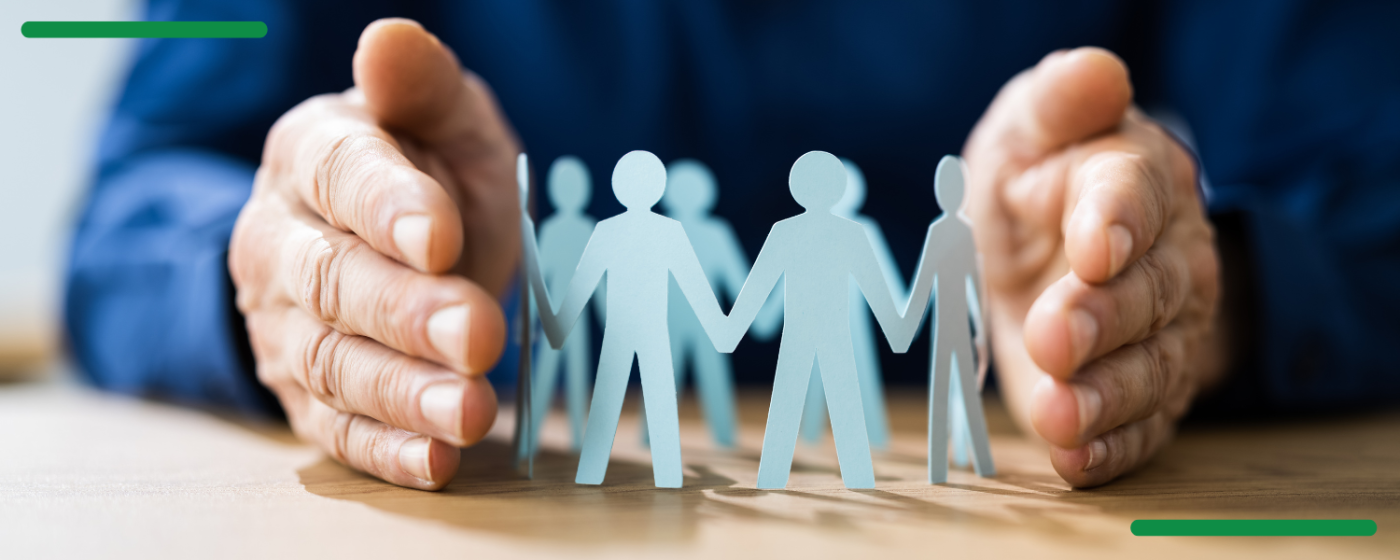Plan For & Protect
Their Legacies REACH OUT NOW

Protect Your Vulnerable Loved Ones From Fraudsters, Scammers and Predators
Stay alert to avoid being victimized.
Fraudsters, scammers, and predators have become increasingly creative and sophisticated in their attempts to take advantage of others, including their friends, colleagues, clients, and even their family members. These individuals will use all means necessary to manipulate our emotions, influence our decisions, do us physical harm, and, worst, gain access to our personal and financial information for their selfish personal gains. These individuals can be anyone in our social circle, including our service providers, professional connections, and even family members.
It's an unfortunate reality of life that certain people will always find a way to take advantage of vulnerable members of society. To prevent this from happening, it's always best to keep a watchful eye on people who may have other intentions and motives against you or your vulnerable loved ones.
A vulnerable person is typically a minor, elderly, or an individual who, for physical, psychological, or mental reasons, is incapable of caring for themselves or their finances
The case of Brooke Astor, who was abused because of her age and illness, is only one of the millions that should remind us to be vigilant in protecting our vulnerable loved ones.
Brooke Astor’s Case
Brooke Astor is a wealthy philanthropist and a New York City Socialite. In 2007, when she passed away at 105, her estate was valued at approximately $131 million.
After her death, it was found out that his son Anthony Marshall was guilty of stealing millions of dollars and illegally tampering with her estate while she was suffering from Alzheimer. Philip Marshall, Astor's grandson, sought justice for the elderly abuse of his grandmother. He led the case to arrest and prosecute his father, risking his inheritance. The case was settled after years of legal fighting against his father.
It's unfortunate when a person who once meant so much to you turns out to be your worst enemy. Protecting vulnerable loved ones from predatory family members is an important issue that must be addressed seriously.
Tips to protect your vulnerable loved ones from fraudsters, scammers and predators:
Get knowledge about the nature of family predators.
Look out for family predators who take advantage of the vulnerable loved ones in the family.
Keep an eye out for those who are isolated and vulnerable. Be there for them, especially when a suspected predatory family member or service provider is with them.
Ensure that trustworthy people handle financial and other important affairs. Keep track of financial transactions involving the vulnerable person's assets. Financial exploitation is seriously underreported, but it is a growing problem as society ages.
Trust but verify. Know the intimate details of someone's life. Do not trust too quickly or lightly with people who want something from your vulnerable relative.
Beware and mindful of family members and other people asking for personal information and bank details. Safeguard your identification cards, bank statements, and billing statements. Think, examine and study the situation before giving out personal information.
Always verify documents related to your vulnerable loved ones. Also be mindful of those with access to the records of your vulnerable loved ones.
If you suspect someone is abusing another family member physically or mentally, take them to a hospital immediately so they can get medical treatment for their injuries or mental condition.
Report any abuse to the authorities immediately. It is important to start maintaining a papertrail of all events related to the law that protects abused victims and provides them with civil rights and remedies against those who commit acts of violence and intimidation against them. You can also file a police report against the abuser if they are influential persons such as politicians or business leaders.
If you are concerned about a family member, seek professional assistance as soon as possible. The problem will not go away by itself and may become more deeply entrenched if not addressed and dealt with promptly, correctly, and thoroughly.
CHECK OUT THESE RELATED ARTICLES:
Probate & Estate Administration
OTHER RELATED ARTICLES:
Importance of Legitimation And How It Impacts the Right of Inheritance? |
The Critical Importance of Trustee Selection and Due Diligence for Asset Management |
ESTATE PLANNING ARTICLES:

